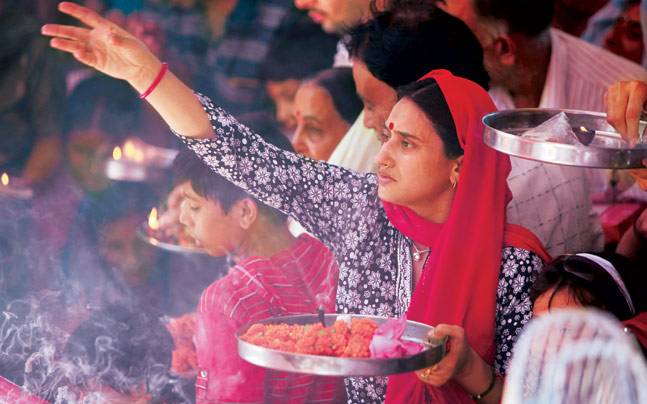In what signals a major shift in India’s minority narrative, the Supreme Court took note of a plea on Tuesday that argued Hindus in Jammu and Kashmir were unable to get the benefits of central and state welfare schemes for minorities due to the lack of a proper mechanism.
A bench headed by Chief Justice TS Thakur issued notices to the Centre, National Commission for Minorities and the state government after the public interest litigation pointed out that no panel has been set up to identify religious and linguistic minorities in the country’s only Muslim-majority state despite repeated representations.
“Jammu and Kashmir has still not legislated the State Minority Commission Act which empowers its Assembly to notify minorities by applying prescribed criteria. Consequently, the benefits exclusively meant for the minority communities are being given away to a certain community,which is the majority community, in an illegal and arbitrary manner,” said the PIL filed by Jammu-based lawyer Ankur Sharma.
NO NEED FOR MINORITY COMMISSION, SAYS SAJAD LONE
Last month, J&K’s Minister for Social Welfare Sajad Gani Lone told the legislative council that there was no need to establish a minority commission in the state, while rejecting demands from BJP legislators.
“Such demands will add fire. Jammu has a Hindu majority and Kashmir has a Muslim majority. We cannot declare minorities at block levels and have to follow national criteria,” Lone said
STATISTICS SPEAK UP
According to the 2011 census, Islam is practised by about 68.3% of the state population. Among the minorities, 28.4% are Hindus, followed by Sikhs (1.9%), Buddhists (0.9%) and Christians (0.3%).
In Kashmir valley, about 96.4% are Muslims, followed by Hindus (2.45%), Sikhs (0.98%) and others (0.17%).
Sharma said he filed the PIL to “safeguard the interests of religious and linguistic minorities and for the enforcement of their fundamental rights.
“Non-identification and non-notification of the minorities is leading to disbursement of minority benefits illegally and arbitrarily according to the whims and fancies of successive state governments,” he alleged.
WHAT IS A MINORITY?
The Union government indirectly recognises Muslims, Sikhs, Buddhists and Christians of Jammu and Kashmir as “minorities”. This in spite of the fact that the National Commission for Minorities Act, 1992, under which the national minorities are to be notified, is not applicable to J&K and thereby the recognition of Muslims as “minorities” was whimsical and illegal, the plea said.
The SC had in the 2002 case TMA Pai Foundation and others Vs State of Karnataka ruled that linguistic and religious minorities are covered by the expression “minority” under Article 30 of the Constitution. Since reorganisation of the states in India has been on linguistic lines, therefore for the purpose of determining the minority, the unit will be the state and not the whole of India.
Sharma pointed out that guidelines for the implementation of the Prime Minister’s new 15-point programme for the welfare of minorities lays down that “in states where one of the minority communities notified under section 2(c) of the NCM Act, 1992 is in fact a majority, the earmarking of physical/financial targets under different schemes will be only for the notified minorities”.
But ignoring the rider, the Union Ministry of Minority Affairs awarded 717 out of 753 scholarships to the majority community in Jammu and Kashmir.
FUNDAMENTAL RIGHTS OF THE MINORITY
Constitutional guarantees under Article 29 and 30 (rights of minorities) are no guarantees at all in Jammu and Kashmir due to the failure of the government in identifying religious and linguistic minorities and declaring them as notified minorities, said the PIL.
The relevant fundamental rights of the minorities in the state have been practically abrogated by not identifying and notifying the minorities. Rights and benefits due to the minorities are being siphoned off arbitrarily and illegally, it added.
The relevant fundamental rights of the minorities in the state have been practically abrogated by not identifying and notifying the minorities. Rights and benefits due to the minorities are being siphoned off arbitrarily and illegally, it added.

